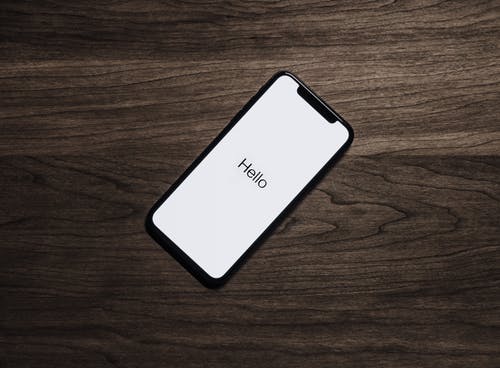GUEST POST: Digital health is defined by Wikipedia as the convergence of digital technologies with health, healthcare, living, and society to enhance the efficiency of healthcare delivery.
These include hardware and software solutions and services.
Hardware includes wearables like Fitbit and different types of monitors while software includes various types of mobile applications and electronic medical records (EMR).
Nigeria is Africa’s most populous nation estimated at over 200 million people as of 2019. With the growing spate of brain drain which has hit the Nigerian Healthcare space like a plague, it has created a high demand for healthcare, and at the same time, presented a huge market for entrepreneurs to provide a solution to the problem of access to timely, effective and quality healthcare.
According to the Nigerian Medical Association (NMA), the parent body of all doctors in Nigeria, we have just 40,000 doctors to cater to over 200m people, which is beyond worrisome.
It is estimated that the United Kingdom employs 12 Nigerian doctors every week. This is according to the international center for investigative reporting.
Aside from the issue of brain drain, there are other issues that shake the Nigerian healthcare system to the brink of imminent collapse.
Top among these is underfunding, lack of equipment and lack of basic infrastructure. This does not exclude the high rate of job satisfaction coupled with poor pay and working in the tensest and supercharged environments.
The average Nigerian doctor is a miracle worker as they are expected to perform magic all the time.
A look at the funding of the Nigerian healthcare system shows that it is grossly below 15% of the total government budget that was agreed at the Abuja Declaration of 2001, of which Nigeria was part of.
The current 2020 budget set aside N46billion of the Ministry of Health, and I wonder if it is going to move the needle.
UHC in Nigeria; a pipe dream?
Universal Health Coverage or UCH is defined by the WHO as ensuring that all people have access to the needed health services that are effective and of good quality and at the same time, does not expose to health users or consumers to financial hardship.
One fundamental building block of UHC is health insurance, and here Nigeria has failed woefully.
The National Health Insurance Scheme (NHIS) was set up about 14 years ago and has barely managed to cover about 5% of the population which is very dismal to say at least.
The NHIS has been riddled with corruption amongst other factors like lack of political will, the optional nature of enrollment, and poor enrollment that has made it fail.
The healthcare workforce is very central to the translation of universal health coverage and a declining workforce is not helpful especially in the Nigerian healthcare context.
In the medium article by Dr. Ola Brown (Orekunrin), she suggested task shifting as an essential means of building a functional healthcare system in Nigeria. This is good in all ramifications, but it is not a panacea for a weak and broken health system, but may serve to even expose the cracks and faults in the system. In a country like Nigeria where regulations are poorly enforced, who draws the line?
Plugging the Gaps.
A lot of us have wondered how we got to where we are today.
Some have decided to take the bull by the horn to see ways of solving the myriad of problems troubling the Nigerian Healthcare system with the hope that if we all solve one problem, we may as well be on the way to healing Nigeria’s broken healthcare system.
A lot of healthcare workers have lost hope in the system, packed their bags and moved over to greener pastures to practice. Some have defied the odds and chosen to stay to see what can be done to resuscitate the comatose Nigerian healthcare system.
They are the Nigerian Healthcare startups, the superheroes, and hope of over 200m Nigerians.
According to Tech Cabal in a 2019 report, there are about 75 healthcare startups in Nigeria which is very exciting when we look at the difficult space they are operating in, the lack of funding and the opaque nature of the healthcare space. They have decided to improve access to healthcare despite all odds, and possibly leapfrog us to a better ranking.
According to Tech Cabal, these Nigerian health tech startups have jointly raised a little above $7m, which is poor when compared with their fin-tech counterparts but at least are making some headway.
These healthcare startups are scattered over different sub-niches and making an impact in their own little way.
These sub-niches include Maternal and Child Health, Electronic Health Records (HER), Health Insurance, Telemedicine, Pharmaceuticals, Services, Content and Information.
Maternal and Child Health
Electronic Health Records (EHR)
Pharmaceuticals
- Drug Stoc
- Mymedicines.com
- Wella Health
Services
Health Content and Information
Telemedicine
Logistics
This list is by no means exhaustive but at least gives a glimpse of what is happening in the health tech space and it is very interesting to note that some of these companies have scaled considerably and done pretty well.
Barriers
Humans are naturally resistant to change and this also applies to health care. The advent and proliferation of these health tech startups at some point, according to healthcare professionals, was a threat to them. According to some, it is something new and untested and is totally different from what was taught in school.
I remember having a chat with Debo Odulana, the founder of Doctoora about some of his challenges in setting up Doctoora in Nigeria and he was quick to mention professionals being threatened. Recently most have begun to come around and embrace it as a support rather than an enemy.
Another barrier is adoption. How many people are using this software? How many people have downloaded the apps? How many actually use these apps?
I personally feel adoption is slow but will improve.
Things will not get better in isolation unless there is concomitant support from the government in terms of funding, political will, good regulatory frameworks, and policies.
Any hope?
Yes, I strongly believe that the Nigerian health tech space has come to stay and will make a more visible impact in no distant time. With increased mobile penetration and internet access, adoption will pick up, and our dream will metamorphose into palpable reality.
In the coming weeks, I will share personal reviews of most of these applications, software, wearables, and also find out how far they have come.
Written by Dr. Ikpe Ronald – CEO/Founder of MRI Medic Consulting Limited. He is a medical content writer, health content creator, and researcher.
































